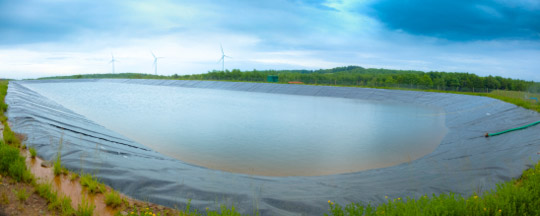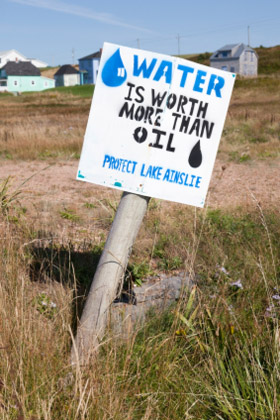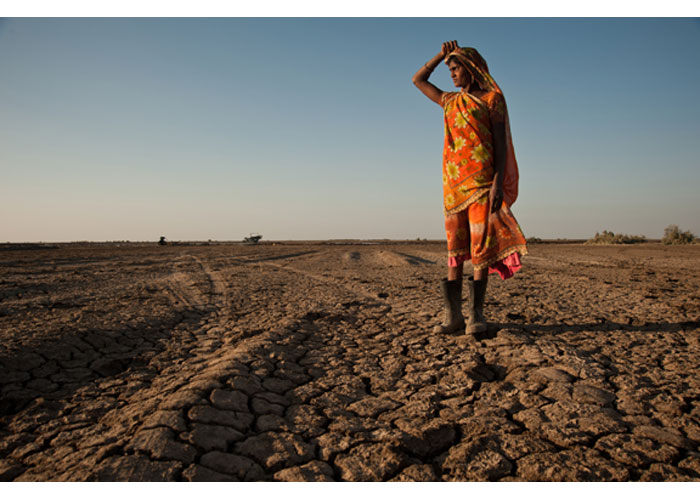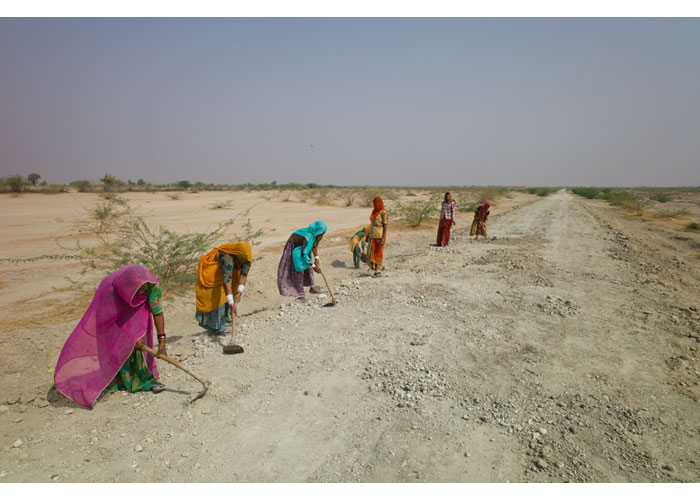Socially Responsible Investors: Working to Minimize Fracking Impacts
At first glance, the Harmony Inn in Butler County, Pa., feels like any other mom and pop bed and breakfast located in any other rural farm town. A closer look at the flyer posted on the community billboard quickly alerts one to something not quite right in this town. The flyer announces the holiday fundraiser to assist families that can no longer drink their tap water and need to purchase bottled water for drinking, cooking and bathing. Welcome to “Frackland,” where “fracking” – known formally as hydraulic fracturing – has made such an impact that getting a glass of water on a hot summer day is now a challenge. Hydraulic fracturing, the process of natural gas extraction that involves injecting millions of gallons of water and chemicals (some unknown) deep underground to create fractures through which gas can flow for collection, has sparked a heated debate across the nation. From the pages of the New York Times to the Bismarck Tribune, stories of flaming faucets and contaminated water have contrasted with industry promises of wealth and national energy “security.” Environmentalists, industry spokespeople, professors and politicians all have weighed in on the controversies and debate surrounding the role natural gas will play in the nation’s future. What has been less reported is that for the last four years investors in oil and gas companies have been leading a campaign to minimize negative impacts of hydraulic fracturing operations. Their central argument: What’s bad for the environment is also bad for business.
The town of Dimock, Pa., made national headlines when residents’ tap water began bubbling and catching fire. The Pennsylvania Department of Environmental Protection (DEP) found high levels of methane in residents’ water. Cabot Oil & Gas was widely considered the culprit after investigators reported the company’s well casings – intended to seal pipes from the surrounding environment and to prevent leaks – were faulty, thus allowing methane to escape into the groundwater.i
In a groundbreaking settlement, the company agreed to pay residents $4.1 million in damages to address the town’s water problems.ii Cabot was also ordered to pay a $240,000 fine, to reimburse the state $500,000 for investigative expenses and to install water treatment systems in 19 homes where the drinking water was contaminated. The company was also barred from drilling any new wells in the township for one year.iii These kinds of bottom-line impacts associated with the environmental management of company operations understandably gave investors cause for concern.iv

© iStockphoto.com/drnadig | Containment pond for a producing Marcellus shale well site. This pond is used to evaporate contaminated water constantly carried to the surface by natural gas.
Moreover, damage from drilling is not limited to Dimock or a handful of other legal settlements. Concerns that toxic fluids and waste from fracking may have contaminated drinking water sources are widespread from Pennsylvania to New Mexico. Issues about potential water contamination and shortages have increased tensions with communities due to competition over finite water resources. Compounding these tensions are numerous studies indicating air pollution from hydraulic fracturing operations may be contributing to acute and chronic health problems of nearby residents.v Finally, a growing body of research indicates gas extraction’s contribution to global warming may be much more significant than initially thought, with some studies suggesting it may in fact be as bad as or worse than coal.
“The fracking boom is a rolling environmental disaster,” observes John Rumpler, senior attorney for Environment America, a federation of citizen-supported environmental advocacy organizations in 29 states. “To make matters worse, this dirty drilling is exempt from key provisions of our nation’s environmental laws, including the Safe Drinking Water Act.”
That lack of federal oversight has heightened investor concern about risks associated with companies’ drilling operations. In 2009, a group of socially responsible investors led by Green Century Capital Management (Green Century) and Investor Environmental Health Network (IEHN) began making the case that shareholders need to know much more about how specifically the fracking operations of companies they are invested in impact the environment and communities in which they drill.
“Shareholders didn’t know and couldn’t find out critical information about company operations, including chemical and water use,” explains Richard Liroff, executive director of IEHN, a national non-profit. “Most companies were silent, and a number pushed back against our efforts to get information shareholders rightly need to evaluate company performance and risk.”
Many companies initially brushed-off investors’ concerns with assurances that hydraulic fracturing technology had been used for 60 years. However, high-profile legal cases, such as that between Cabot Oil & Gas and Dimock, started to highlight risks and expenses companies expose themselves and their shareholders to by disregarding impacts their operations have on the environment and surrounding communities. And concerns about potential water contamination and shortages between communities have already begun.
“The rumblings have definitely started. It used to be, ‘Are you going to contaminate my water?’ Now the concern is, ‘You’re going to use up all my water,’” said Chris Faulkner, chief executive officer of Breitling Oil and Gas Corp, in a Bloomberg Businessweek article.vi
Hydraulic fracturing has also recently been linked to increased ozone and methane levels. This decline in regional air quality has prompted health concerns among local residents and further tarnished natural gas’s reputation as the more “climate-friendly” alternative.vii;viii As such concerns have grown, the industry has faced unprecedented public backlash and paid heavily for failing to manage its environmental and community impacts.
Environmental advocate Robert F. Kennedy, Jr., noted in a New York Times article, “In 30 years, I have not seen anything come close to this in terms of mobilization of grassroots. You’ve got 20,000 people in one state who consider themselves to be anti-frack activists.”
Across the country, these grassroots coalitions of community members have succeeded in passing bans and moratoria on the practice of fracking, thus imposing heavy costs on companies whose operations are halted. Norse Energy Corporation USA filed for Chapter 11 bankruptcy in December 2012 as a result of New York State’s four year moratorium that idled seven of the company’s wells in the area. Royal Dutch Shell estimates 40 percent of its New York acreage could be off-limits because of potential state rules.
“Bans and moratoria represent denials of companies’ social license to operate – denials of public consent – arising from concerns about environmental and social risks. Companies that fail to manage their impacts face a wide range of costs as a result of this loss, from the costs of delays to complete loss of access to valuable resources where sunken costs must be written off,” explains Liroff.
A central concern for communities across the country is a desire to have a better understanding of the practices taking place, sometimes literally in their back yards. These concerns have been aggravated by chemical industry resistance to disclosing what they consider to be proprietary information. While some states have laws requiring oil and gas companies to disclose chemicals used during fracking, companies are often granted exemptions if and when they argue the information is proprietary and a trade secret.

© iStockphoto.com/Joe_Potato
A recent study from Bloomberg News reports that in Texas alone, drilling companies claimed trade secret or “similar” exemptions about 19,000 times in 2012 and that “nationwide, companies withheld one out of every five chemicals they used in fracking.”ix The frequent invoking of trade secret protection has done little to restore confidence among communities and their members who are weighing the risks of letting an outside company in to drill near their homes and schools.
At the same time, investors were also growing increasingly concerned about the lack of information companies were providing about impacts and corresponding business and financial risks posed by their fracking operations. Leaks, spills, lawsuits and picketing community members are all indicative of a company not paying attention to its impacts and, arguably, the financial repercussions of those impacts. Fukushima and BP Deepwater Horizon serve as uncomfortable reminders of costs to shareholders when companies are lax in their environmental management.
In these cases, investors were largely caught off guard at the risk their companies had been facing, and the sudden drop in share prices came as an unpleasant surprise. Without information about gas companies’ water use, chemicals management practices or air emissions, investors have no way of knowing which companies are most at-risk for receiving fines, losing their drilling licenses or making risky business decisions that may damage both the environment and shareholder value. Shareholders typically don’t like surprises, especially those that could result in financial losses.
The coalition represents a wide range of investors, including large public pension funds, mutual funds, religious institutions and foundations. As shareholders, investors have the right to raise certain concerns about company management that may present threats to shareholder value by filing shareholder resolutions. The coalition filed shareholder resolutions at 12 companies in 2009, including Chesapeake Energy Corporation, EOG Resources, Exxon Mobil and Williams Companies, calling on these companies to address environmental impacts of their hydraulic fracturing operations.
“As investors, we are concerned that investment value may be undermined by company policies and practices that lag public and regulatory expectations for environmental protection,” says Sister Nora Nash of Philadelphia’s Sisters of St. Francis. “Given the inadequacy of current regulations to protect communities from effects of this rapidly expanding industrial activity, companies need to go beyond compliance to ensure community and environmental concerns are adequately addressed.”
When companies argued these impacts were not an issue, especially not an issue of shareholder concern, the group set out to write memos, to give presentations and to educate fellow shareholders about the financial risk companies were facing by ignoring their impacts on communities and the environment. Finally, in May 2010, it was time for shareholders to cast their votes.
“These votes sent a very clear message to companies that investors are concerned about financial risks posed by environmental impacts of hydraulic fracturing,” said Leslie Samuelrich, senior vice president of Green Century, the investment advisor to a family of environmentally responsible mutual funds. “It happens not only to be the right thing to do, but managing company impacts and not contaminating water supplies is also a smart business strategy.”
These concerns were being noticed among regulatory agencies as well. In 2011, the Securities and Exchange Commission, the federal government’s investor and markets watchdog, upped the pressure on fracking companies to provide investors with information about risks hydraulic fracturing operations posed to communities, the environment and, consequently, investors. The International Energy Agency, an intergovernmental energy agency, cautioned oil and gas companies on the need to be better neighbors, stating: “Full transparency, measuring and monitoring of environmental impacts and engagement with local communities are critical to addressing public concerns. Operators need to explain openly and honestly their production practices, the environmental, safety and health risks and how they are addressed.”
As pressure not only from environmentalists but also investors and regulators has grown, companies have been forced to address negative impacts of their operations. Since that initial year, investors have noted a marked increase in company responsiveness to their concerns. For example, Green Century says it was only necessary to bring this issue to vote once at EOG Resources to get management’s attention. After the proposal received 31 percent of the vote in 2010, EOG Resources has worked with Green Century to address concerns raised in the following years relating to toxic chemical use, community relations and reporting of violations. As of March 2013, the campaign had filed 37 resolutions at 20 companies and published a well-received guide to best industry practices to spur a “race to the top” among these companies.x Whereas investors were initially limited by lack of information and attention to issues, companies have become more transparent in response to investor concerns, and the campaign is now pushing for companies to be accountable for minimizing their impacts. “Transparency is an important first step, but companies must also implement quantifiable plans to reduce the impact of their operations on the environment,” says Samuelrich.
For the spring 2013 shareholder meetings, the investor coalition’s resolutions focus on quantitative risk reporting or, in other words, getting companies to set, measure and meet goals to reduce their environmental impacts. Investors are urging companies to issue public reports that include specific data and targets relating to water use and disposal, toxic chemical use and reduction, air emissions and community relations. The coalition is also busy preparing a scorecard report on policies, procedures and performance of all major gas companies using hydraulic fracturing.
And what about the residents of Butler County? “I love Butler County, but I fear I will have to foreclose on my home and leave,” wrote Kim McEvoy in a letter hand-delivered to Governor Corbett. “I just wonder how many more Pennsylvanians will have to make this same heart-breaking decision. Please stop the drilling. It’s not right to allow the gas companies to gamble with our lives.”xi





























